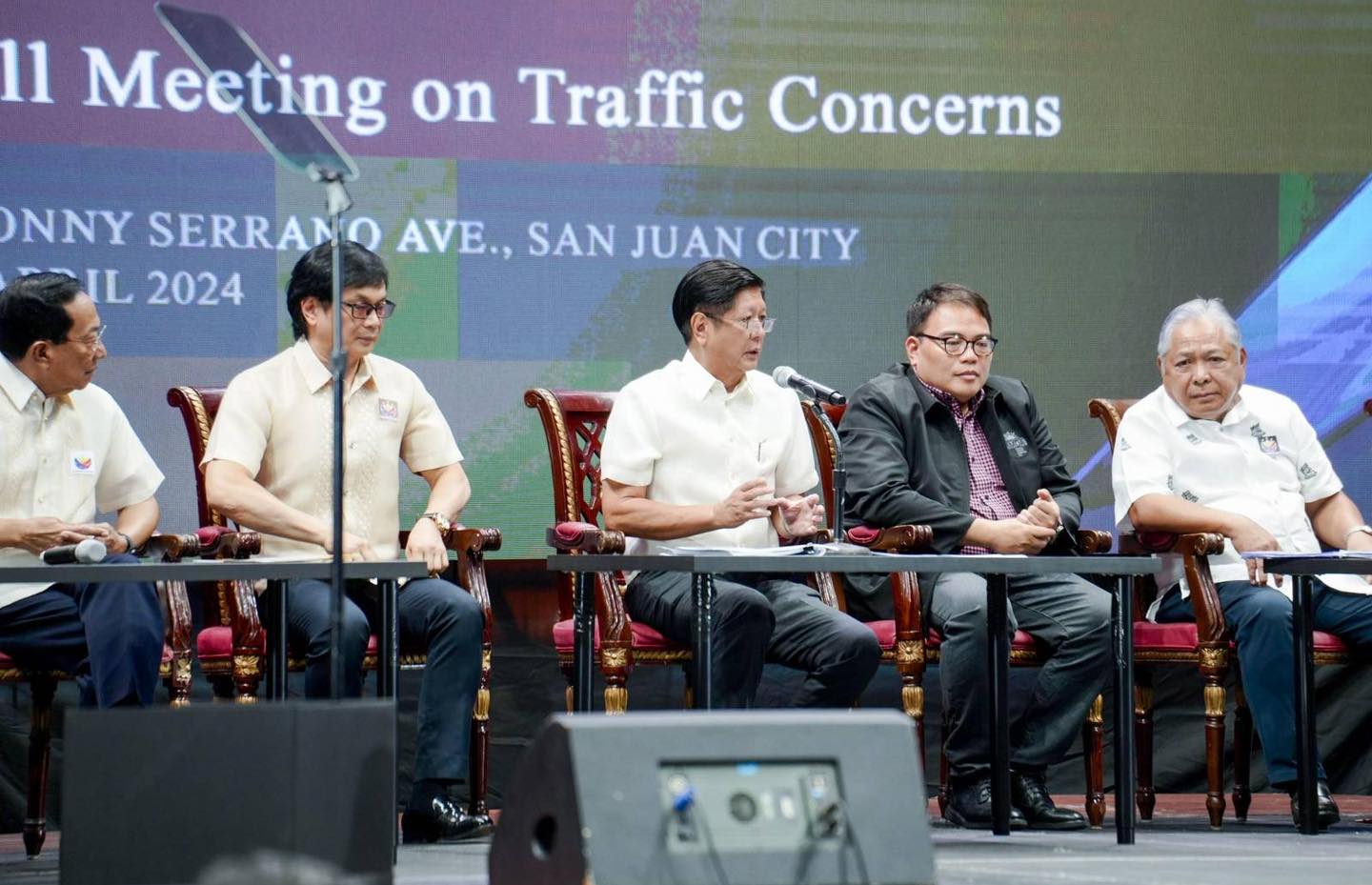
By Brian Jules Campued
Following the Bagong Pilipinas Town Hall Meeting on Traffic Concerns on Wednesday, Malacañang said that President Ferdinand R. Marcos Jr. has issued Administrative Order (AO) No. 18, prohibiting government officials and personnel from using sirens, blinkers, and other similar signaling or flashing devices as rampant use of said devices cause traffic disruptions and unsafe road environments.
“All government officials and personnel are hereby prohibited from utilizing sirens, blinkers, and other similar gadgets that produce exceptionally loud or startling sound, including dome lights, blinkers, or other similar signaling or flashing devices,” Marcos stated in his AO No. 18.
Exempted from the ban are the Armed Forces of the Philippines (AFP), National Bureau of Investigation (NBI), Philippine National Police (PNP), fire trucks, hospital ambulances, and other emergency vehicles.
Unauthorized and improper use of signaling or flashing devices will be dealt with following applicable laws, rules, and regulations, Marcos said.
“In this light, all government officials and personnel are hereby reminded that use of sirens, dome lights, blinkers and other similar devices shall only be under exigent or emergency circumstances or situations or to ensure the expedient and safe passage of emergency responders,” he said.
The President, likewise, directed the Department of Transportation (DOTr) along with other government agencies to review, regulate, and evaluate and update existing policies and guidelines to ensure the effective implementation of AO 18.
Senate Majority Leader Joel Villanueva commended Marcos for issuing AO 18, noting that public officials must set a good example to the public particularly in dealing with traffic.
“Huwag na po tayong dumagdag sa kalbaryo ng ating mga kababayang araw-araw na tinitiis ang trapik sa iba’t ibang lugar sa bansa,” Villanueva said in a statement on Thursday.
Senator Grace Poe, likewise, echoed Villanueva’s statement that government officials should “lead the way in shunning abuse and the display of self-entitlement on the road.”
She added that the “wang-wang” ban should be enforced fairly and universally.
“Pantay-pantay tayo dapat kahit sa kalsada. Ang byahe ng government officials ay kasing importante rin ng byahe ng ordinaryong mamamayan,” Poe said.
Meanwhile, Marcos also issued Executive Order (EO) No. 56 to regulate the issuance of protocol license plates to government officials due to increasing complaints of unauthorized usage.
Under the EO 56, which amends EO No. 400 (series of 2005), the President cut down the number of government officials entitled to use protocol license plates to 14 from the previous list of 16 officials.
The list of designated numbers are the following:
- President – 1
- Vice President – 2
- Senate President – 3
- Speaker of the House of Representatives – 4
- Chief Justice of the Supreme Court – 5
- Cabinet Secretaries – 6
- Senators – 7
- Members of the House of Representatives – 8
- Associate Justices of the Supreme Court – 9
- Presiding Justice of the Court of Appeals (CA), Court of Tax Appeals (CTA), and Sandiganbayan, and Solicitor General – 10
- Chairpersons of Constitutional Commissions and Ombudsman – 11
- Chief of Staff of the AFP and Chief of PNP – 14
The authorized officials will only be allowed a maximum of two pairs of protocol license plates, while the President, Vice President, Senate President, Speaker of the House of Representatives, and Chief Justice of the Supreme Court may be allowed a maximum of three pairs, according to the EO.
The EO sets the validity of protocol license plates to authorized officials to “only during their incumbency and may only be used for motor vehicles duly registered in their name and/or officially assigned to them.”
“All previously-issued protocol license plates issued pursuant to EO No. 400, as amended, except those issued to incumbent authorized officials under Section 1 hereof, are deemed expired,” the EO stated.
It also directed the DOTr to develop and maintain a registry of protocol license plates issued to all authorized government officials and/or motor vehicles.
Both signed by Executive Secretary Lucas Bersamin on March 25, AO 18 and EO 56 will take effect immediately after publication in the Official Gazette or a newspaper of general circulation. – avds
